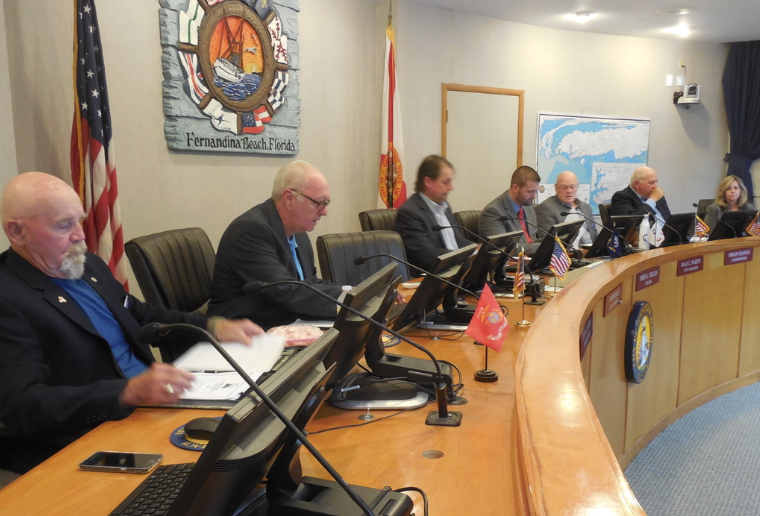Submitted by Suanne Z. Thamm
Reporter – News Analyst
November 21, 2018
The Fernandina Beach City Commission (FBCC) breezed through a light agenda during its November 20, 2018 Regular Meeting, adjourning after barely a half hour on routine business. Both City Manager Dale Martin and City Attorney Tammi Bach were absent from the pre-Thanksgiving meeting. Airport Manager Nathan Coyle sat in for the city manager.

The only item to generate discussion was consideration of a resolution authorizing the city manager to prepare a paid beach parking plan for presentation at a future date in the new year.
The City Commission had previously adopted Resolution 2018-152 directing the City Manager to provide additional information related to paid beach parking. With the need for additional time to prepare the requested information as well as the transition of a new City Commissioner, the City Manager had recommended that the paid beach parking discussion be deferred to the City Commission’s annual visioning and goal-setting session (likely late January) before returning to a regular City Commission agenda for possible action.
While there seemed to be general agreement that city residents and property owners would be exempted from a paid beach parking plan, many details remained to be addressed.
 The FBCC approved the resolution authorizing the delay unanimously. But not before Commissioner Chip Ross asked the FBCC to support a request that the City Manager approach Nassau County to consider establishing a county wide Municipal Services Taxing Unit (MSTU) that would collect revenue from all county property owners (except those in the corporate limits of Fernandina Beach) to assist the city in repairing, replacing and/or maintaining beach amenities such as dune walkovers, restrooms and parking areas. Currently, only city taxpayers fund these beach-related items.
The FBCC approved the resolution authorizing the delay unanimously. But not before Commissioner Chip Ross asked the FBCC to support a request that the City Manager approach Nassau County to consider establishing a county wide Municipal Services Taxing Unit (MSTU) that would collect revenue from all county property owners (except those in the corporate limits of Fernandina Beach) to assist the city in repairing, replacing and/or maintaining beach amenities such as dune walkovers, restrooms and parking areas. Currently, only city taxpayers fund these beach-related items.
In introducing the concept, Ross enumerated all the services that city residents and property owners currently fund to keep the beaches accessible and safe. The so-called “sand tax” MSTU, which was recently instituted to cover the local cost share of beach renourishment, is only collected from city and island property owners not already contributing to this effort through the South Amelia Island Short Stabilization Association (SAISSA).
It was the consensus of the FBCC that this concept be explored with Nassau County in a future joint meeting of the two commissions.
